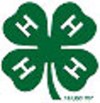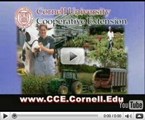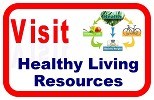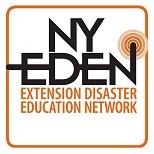Posted 7/26/2012
by Linda E. Wegner
Due to the potential of severe weather in our area, the fair orientation session tonight is cancelled. The CCEFM office in Canajoharie is closing today at 3:00 p.m. due to the severe weather alert. A tornado watch was issued at 2:10 p.m. until 9:00 p.m. for an area including Fulton and Montgomery Counties.
If you need some assistance in regards to fair preparations, please contact Bonnie Peck about animal exhibit topics at 673-5525 ext. 115 or bsp8@cornell.edu. Questions/concerns about general, non-animal 4-H exhibits may be directed to Georgia Dutcher at 673-5525 ext. 113 or gad23@cornell.edu or Linda Wegner at 673-5525 ext. 114 or lew9@cornell.edu. Linda and Bonnie are willing to meet with new 4-H club leaders about 4-H fair questions on a one-on-one basis.
- This Afternoon Showers and thunderstorms likely, mainly after 4pm. Some storms could be severe, with large hail, damaging winds, heavy rain, and frequent lightning. Mostly cloudy, with a high near 82. Southwest wind around 10 mph. Chance of precipitation is 60%. New rainfall amounts between a tenth and quarter of an inch, except higher amounts possible in thunderstorms.
- Tonight Occasional showers and thunderstorms, mainly before 11pm. Some storms could be severe, with large hail, damaging winds, heavy rain, and frequent lightning. Low around 67. West wind 3 to 7 mph. Chance of precipitation is 80%. New rainfall amounts between a half and three quarters of an inch possible.
Posted 7/12/2012
by Bonnie Peck

4-H Veterinary Science Course “The Normal Animal”
August 1-2, 2012: 8:30 a.m.-4:30 p.m. (both days)
This year’s 4- H Veterinary Science Program is for youth ages 13 and up who are interested in exploring animal health. For 2012, we will be learning about the normal animal and then in 2013 we will focus on animal diseases. The program will involve both classroom time and going “on the road” to veterinary clinics, farms, and other animal health support businesses. The program will be a mix of hands-on and interactive learning. This is a new format from years past and will prove to be interesting and exciting. Local veterinarians will be assisting throughout the two-day period and we will visit a mix of large and small animal veterinary practices. We will be meeting at the Cornell Cooperative Extension Office in Canajoharie for the program. Cost: $25 for the two days which will include lunch each day.
Due to limited space, only those who have not previously attended will be able to participate. If you have taken part in Vet Science in the past and wish to continue further, there is a Unit 3 that is a self-directed study with a Veterinarian Mentor. Please contact Bonnie for more information. Pre-register by contacting Bonnie at the 4-H office at 673-5525 ext. 115 by July 30.
Posted 7/5/2012

The 4-H Animal Science Program in Fulton and Montgomery Counties is seeking individuals and/or businesses to sponsor well-deserved 4-H youth awards for Fonda Fair for which we have no current supporters. The awards that need sponsors include: Champion Angus Beef, 1st place Senior Sheep Showman, 1st place Novice, Junior, and Senior Goat Showman, Grand Champion Saanan Dairy Goat, Grand Champion Nubian Dairy Goat, and 1st place Junior Rabbit Showman. The cost of sponsorship for each of these awards is $20.
Prospective sponsors should contact Bonnie Peck at 518-673-5525 x 115 as soon as possible. Please note that if sponsors are not identified prior to the opening of Fonda Fair, these awards will not be given.
Posted 7/3/2012
by Bonnie S. Peck

A recent Cryptosporidium outbreak in Oneida County may be associated with a Farmfest event. With lots of summer events planned that include animals, farm and petting zoo hosts need to take care to help prevent illness resulting from such events. While this recent outbreak was the result of Cryptosporidium, there are several other micro-organisms that can also be associated with events such as these.
While not all types of animals carry forms of Crypto that make humans sick, those that do are commonly found at petting zoos and fairs: calves, lambs, baby goats, chickens, etc.
Cryptosporidium is a one-celled microscopic animal that generally lives in the intestinal cells of its “host”. It is very common and is the leading cause of death of children worldwide (especially in third-world countries). There were 6.6-11.6 thousand reported cases in 2006-2008 for children ages 1-9 and 400 cases reported in New York State last year. It is considered to be a water-borne illness and is most common from the early months of summer through the early fall.
Posted 6/26/2012

With summertime comes an open door to friends and family who may travel from afar to spend time with you and your family in your home. The New York State Energy Research and Development Authority offers the following information in a recent press release.
* Illuminate with ENERGY STAR®. As you start increasing use of your outdoor space, buy ENERGY STAR qualified outdoor lighting for your porch, deck or patio. Making the change from traditional lighting to ENERGY STAR lighting can result in an energy savings of 75 percent or more.
* Microwave it or grill it. Can't stand the heat in the kitchen? Use your microwave oven as much as possible in the summer rather than your regular oven. Microwave ovens use around 50 percent less energy than conventional ovens. You can also fire up the grill and dine al fresco! Your house will stay cooler and you'll save energy.
* Check the date. If your current refrigerator was made before 1993, replace it with a new ENERGY STAR model which uses half the amount of energy. If you have a fridge from the 1980s, replace it with an ENERGY STAR qualified model and save over $100 per year on your utility bills.
* Keep it at zero. To save energy, keep the temperature of your freezer at 0°F.
* Curtains closed. Block out heat by keeping blinds or curtains closed during the day, especially on south-facing windows.
* Change the way you dry. If possible, dry clothes on a clothes line. If you use your dryer, try to do full loads, or reduce drying time for partial loads.
* Keep your lint trap clean. Remember to clean the lint trap before every laundry load; it's an important energy saver and one of the easiest things you can do to increase drying efficiency. This step can save you up to $34 each year.
* Think early and late. Use ovens, washing machines, dryers and dishwashers in the early morning or late at night when it's generally cooler outside.
For more information on NYSERDA programs, please visit nyserda.ny.gov<http://nyserda.ny.gov/>.
Posted 6/19/2012
by Sally Barclay, MS RD LD

Excerpted from Eating with the Summer Season, Sally Barclay, MS RD LD Nutrition Clinic for Employee Wellness, barclay@iastate.edu
• Dangers of grilling: formation of HCAs (heterocyclic amines) and PAHs (polycyclic aromatic hydrocarbons)
• HCAs linked to higher risk of breast, colon, stomach and prostate cancers-mainly animal studies
• Don’t grill over open flame or let meat catch on fire and burn
• Indoor grilling may be less risky
• Marinate foods-reduces HCAs formed by 92-99%
• Precook in oven or microwave to limit grill time
• Rotisserie can help cook foods more evenly with less charring
• Grill smaller pieces such as kabobs to limit grill time
• Use drip pan to catch dripping fat and prevent flare-up
• Flip food frequently (once per minute)
• Trim fat before cooking
• Remove charred or burnt pieces before serving
• Choose lean cuts of meat-round, sirloin, loin, flat iron, ranch, petite tender
• Marinate in salsa, low-calorie salad dressing, wine, citrus juices
• Firm ripe fruit basted with cooking spray or melted margarine-sprinkle with cinnamon, brown sugar or ginger-grill until hot or golden brown (4 to 10 min)
• Apples, apricots, cantaloupe, nectarines, peaches, pears
• Bananas, oranges, tangerines, pineapple in their skins
• Firm, ripe veggies-skewer if small-baste and season with herbs and flavorings such as soy sauce, white wine, flavored vinegars or marinades—grill until hot, tender and golden brown
• Bell peppers, eggplant, mushrooms, onion, summer squash, tomatoes, corn (can do in husk)
• Pre-cook artichokes, carrots, potatoes and sweet potatoes
Find the complete Eating with the Summer Season (Microsoft Powerpoint format) attached or at www.extension.org
Posted 6/14/2012

Last week MyPlate had a birthday! On June 2, 2011, the USDA released its new food icon and My-Plate officially replaced MyPyramid as the guide to healthful and balanced eating. This week, we’ll explore some of our favorite aspects of MyPlate.
Here’s a review of key MyPlate information that you should know. These are some of MyPlate’s most important consumer messages, and you can find details at www.choosemyplate.gov.
These messages come in three categories:
- Foods to Reduce
- Foods to Increase
- Balancing Calories
Can you match the messages below to the categories above?
- Enjoy your food, but eat less.
- Fill half your plate with fruits and vegetables.
- Replace sugary drinks with water.
- Compare the sodium content among various breads, soups, canned meals, and frozen meals, then choose the option with low numbers.
- Avoid oversized portions.
- Choose fat-free or low-fat milk.
- Make at least half the grains you eat whole grains.
Click on the full story button to see the answers!
Posted 6/7/2012
Join museum staff and students for a friendly, informal weekend of exploring research conducted by friends, affiliates, and staff of the Paleontological Research Institute. Originally called Paleo Homecoming, it began as part of the institute's 75th anniversary celebration and everyone enjoyed it so much, they've kept the ball rolling every year since.
Attend for some or all of two days of activities starting with presentations during the day Friday, a barbecue Friday evening, and a fossil collecting trip on Saturday. The registration fee ($25 or $15 for students) includes lunch and dinner on Friday, breakfast and lunch on Saturday, and the opportunity to camp amongst the exhibits (or outside) at the Museum of the Earth!
Don’t miss this opportunity to hear about new research, go fossil collecting, visit PRI’s collections, and interact with paleontology professionals, students, and enthusiasts. For more information, download the PDF below or contact symposium@museumoftheearth.org.
Posted 6/6/2012
Cornell Cooperative Extension in Fulton and Montgomery Counties will present two lessons to summer youth programming sites including libraries July 2-August 17. Each 45 to 60-minute, hands-on lesson is geared for youth ages 5-12. Due to significantly reduced organizational operating funds and staffing for Cornell Cooperative Extension in Fulton and Montgomery Counties, there is a limit of one lesson topic per programming site.
What’s on Your Plate?
Using the book Gregory, the Terrible Eater by Mitchell Sharmat and/or The Edible Pyramid by Loreen Leedy together with the USDA’s MyPlate materials, youth will learn about the importance of eating food from all five food groups and making healthy choices. Youth will explore examples of nutrient dense and calorie dense foods in each food group. Depending on the ages of youth, participants will play “MyPlate Bingo” or a “Healthy Meals” relay.
Are You Energy Smart at Home?
Referencing the book Why Should I Save Energy? by Jen Green and/or Our Earth: Saving Energy by Peggy Hock together with a variety of materials, youth will learn about energy use at home, how to make wise energy decisions and how to protect the environment. Each youth will complete a household energy report card for his/her family. Depending on the ages of youth, participants will play “Active Energy Sources”, “Energy Detective” and/or “Energy I.Q.”.
A minimum of 5 youth participants is necessary to schedule a lesson at your site and we can accommodate a maximum of 25 youth for each lesson. Youth program site coordinators who would like to schedule one of the lessons listed above should contact Linda Wegner no later than June 22nd at 673-5525, ext. 114 or lew9@cornell.edu.
Posted 5/29/2012

June 1st is the last day to enroll in the Fulton/Montgomery 4-H youth development program of Cornell Cooperative Extension for the 2011-12 program year, including 4-H club membership and 4-H independent membership. All 4-H members must be enrolled or re-enrolled by June 1 to be eligible to exhibit in 4-H classes in the 2012 Fonda Fair and complete this 4-H year. Youth not enrolled in 4-H are not eligible to participate in summer events such as Farmer's Museum Junior Livestock Show, 4-H Horse Camp and Bi-County 4-H Horse Show. Enrollment paperwork and fees for the 2011-12 4-H program year must be received at the Cornell Cooperative Extension Office in Canajoharie on or before Monday, June 4th at 4:30 p.m. Enrollments for the new 2012-13 4-H year will begin October 1st.
Additionally, 4-H club leaders and independent members must update their 4-H project enrollments to reflect new project work they have undertaken by June 1st. After this date no new projects may be added until the new enrollment period in the fall of 2012. 4-H members may only exhibit project work in which they are enrolled by June 1 at the Fonda Fair and New York State Fair.
The following 4-H animal science certifications must be filed with the 4-H office by June 1: 4-H Livestock Certificate, 4-H Horse Certificate, and 4-H Dairy Cattle Non-Ownership Certificate. 4-H animal science project members who do not submit required certification by June 1st are ineligible to exhibit and show their project animals this year.
Questions about 4-H enrollment may be directed to Fulton/Montgomery 4-H Youth Development staff at the Cornell Cooperative Extension Office in Canajoharie, New York at 518-673-5525 ext. 113 or 114.












